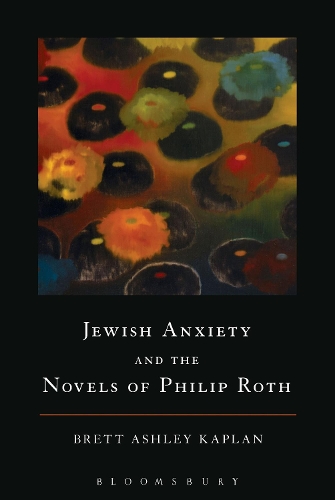
Jewish Anxiety and the Novels of Philip Roth
(Hardback)
Available Formats
Publishing Details
Jewish Anxiety and the Novels of Philip Roth
By (Author) Brett Ashley Kaplan
Bloomsbury Publishing PLC
Bloomsbury Academic USA
23rd April 2015
United States
Classifications
Tertiary Education
Non Fiction
Literary studies: fiction, novelists and prose writers
813.54
Physical Properties
Hardback
216
Width 152mm, Height 229mm
442g
Description
Jewish Anxiety and the Novels of Philip Roth argues that Roth's novels teach us that Jewish anxiety stems not only from fear of victimization but also from fear of perpetration. It is impossible to think about Jewish victimization without thinking about the Holocaust; and it is impossible to think about the taboo question of Jewish perpetration without thinking about Israel. Roth's texts explore the Israel-Palestine question and the Holocaust with varying degrees of intensity but all his novels scrutinize perpetration and victimization through examining racism and sexism in America. Brett Ashley Kaplan uses Roth's novels as springboards to illuminate larger problems of victimization and perpetration; masculinity, femininity, and gender; racism and anti-Semitism. For if, as Kaplan argues, Jewish anxiety is not only about the fear of oppression, and we can begin to see how these anxieties function in terms of fears of perpetration, then perhaps we can begin to unpack the complicated dynamics around the line between the Holocaust and Israel-Palestine.
Reviews
In Jewish Anxiety and the Novels of Philip Roth, Brett Kaplan offers a timely reassessment of the notion of Jewish anxiety. Roths fiction, Kaplan brilliantly argues, exposes an essential contradiction in contemporary Jewish moral life, often displaced into his representations of race, gender, and sexuality. By moving beyond the conventional account of how Roth returns to the mid-century pasthow the Jews Roth writes about are driven by fear that anti-Semitism may again victimize Jews as the millions were in the HolocaustKaplan engages Roth in ongoing history. She uncovers in his fiction an antithetical anxiety among Jews who confront how Jewish actions during the Israel-Palestine conflict may victimize others. Kaplans exceptional historical insight enables her to discern in the politics of Roths novels the manifold ways in which the contemporary Jew may experience moral ambivalence. Kaplans book will change the way that readers think about Roth and the Jews. * Debra Shostak, Mildred Foss Thompson Professor of English Language and Literature, The College of Wooster, USA *
This is a perceptive, perspicacious and provocative book that offers fresh, persuasive readings of many of Roth's key works. Kaplan has read widely and thought carefully about the tensions that animate Roth's work and her study will be very valuable to both scholars and students. * David Brauner, Professor of Contemporary Literature, The University of Reading, UK *
This engaging study of dual anxiety in Roths work linked to victimization and perpetration -- breaks new ground in its analysis of his fiction. Widening the complex nature of anxiety and linking it to race and history, Kaplan successfully shows Roths strategies in facing the complex double bind of his characters. * Ira B. Nadel, Professor of English, University of British Columbia, Canada *
Jewish Anxiety and the Novels of Philip Roth suggests that Roths oeuvre shows the urgency needed to examine central social and cultural concerns such as race, gender, capitalism, terrorism, and genocide. These universal problems are tied up with unique individuals wrestling with an overwhelming anxiety of victimhood and perpetration. How does Kaplan relate remembering to the heroism of Roths characters that is expressed in almost psychotic rebelliousness against moving on Does wrestling with the self and with acculturation create an option to remember and usher in a new form of historical relevance and responsibility In relation to The Human Stain, Kaplan specifically writes that Roth develops a bleak vision and according to it our belonging to the world is disclosed by the stain: there is no hope for redemption or reconciliation. Roth thus demonstrates how we are all stained with the blood of our past and with the immobility of that past. * Philip Roth Studies *
Author Bio
Brett Ashley Kaplan is Professor and Conrad Humanities Scholar in the Program in Comparative and World Literature and the Program in Jewish Culture and Society at the University of Illinois, Urbana-Champaign, USA.
